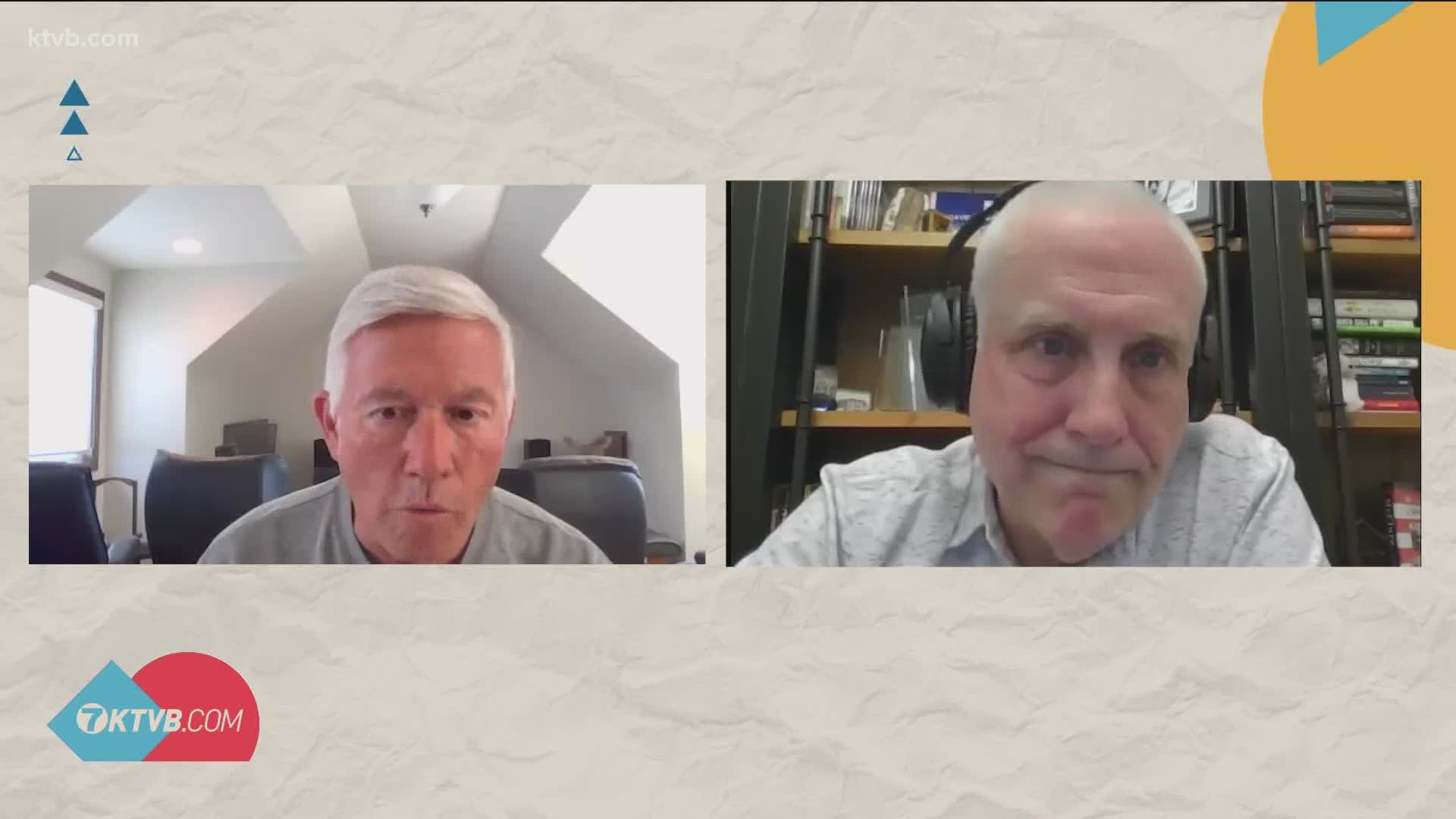BOISE, Idaho — The COVID-19 pandemic was a challenging time for people across Idaho, the United States, and the world. Health experts say they hope people are able to learn from the trying times.
“One thing that we know from history is we tend not to learn from history, said Idaho medical expert Dr. David Pate.
With that in mind, Dr. Pate and Idaho health expert Dr. Ted Epperly were determined to make sure that isn’t the case when it comes to dealing with a global pandemic like COVID-19.
“I think it was late November or early December and Dr. Epperly said to me, David we need to write a book about this,” Dr. Pate said.
From their perspective, research, and work on the frontlines of research into the coronavirus, Pate and Epperly say they learned a lot over the last year and a half. So, they got to work on a book.
“This is not going to be a book so much about COVID-19, it’s going to be about learning the lessons from this pandemic so we can prepare for the next one, because there will be a next one,” Pate said.
Pate and Epperly’s book got the attention of a one of the most prestigious outlets in the science literature world.
“John’s Hopkins University is the leading public health university in the United States and to get this book published by a university of that stature, maybe the best university for public health in the world, it’s a big deal. We were really honored,” Epperly said.
The book aggregates 117 recommendations of how future pandemics like COVID can be better handled. The pair realized through their work that there was an opportunity to share research in a way that would be very helpful to modern society.
“A lot of people were going back to the 1918 Spanish Flu pandemic to see what the lessons learned from that were. Books were being bought about that because there wasn’t anything in the inventory that spoke to this. So, we saw a gap there,” Epperly said.
Pate and Epperly point out that, yes, there were pandemic plans in place from major government and scientific organizations but that the last year and a half have shown some of the holes in those plans and places to improve. They worked diligently to create guidance for organizations at the highest level down to places like local schools.
“These recommendations are meant to help all of those people that have to now do the revisions of their pandemic plans so that we can be better prepared,” Pate said.
The book dives into improvements in several areas, but one example in the book from Dr. Pate is the United States pandemic equipment stockpile of supplies for things like masks and gowns for frontline medical workers.
“We had shortages all across the country. We had one hospital where nurses were wearing trash bags for their PPE," Pate said. "We can’t have that again and so we even come up with suggestions about if we can’t count on the federal government, maybe here are some things the states can do and how they could take care of this.”
The pair not only looked at the science aspect of the pandemic but also the social interactions that played out.
“We didn’t think that at a time of crisis we would become so divided, we thought that we would be able to pull together, and that people would want to follow public health guidance so we could get through this. We learned a lot,” Pate said.
The science portion of dealing with a pandemic is crucial, but they says the social interworking with that is just as important, as the last 18 months has illustrated.
“Instead of us acting like an intelligent species of animals on this planet, we acted like total idiots. That is my key point, we have got to assume good intent, we’ve got to at some level trust each other, to work together for the best outcome possible,” Epperly said.
To be clear, the upcoming book isn’t designed to criticize everything involved with handling the COVID-19 pandemic but instead serve as an honest and thoughtful guide for the future.
“We didn’t want to necessarily rehash all the mistakes as much as, okay what is it that can be learned from it that we can put into play next time. We wanted to keep it future oriented going forward,” Epperly said.
The book currently has a working title of, “Preparing for the Next Pandemic: Lessons, Stories and Recommendations.” The book is expected to be available in about a year in summer 2022.
Join 'The 208' conversation:
- Text us at (208) 321-5614
- E-mail us at the208@ktvb.com
- Join our The 208 Facebook group: https://www.facebook.com/groups/the208KTVB/
- Follow us on Twitter: @the208KTVB or tweet #the208 and #SoIdaho
- Follow us on Instagram: @the208KTVB
- Bookmark our landing page: /the-208
- And we also turn each episode into a podcast on Podbean
- Still reading this list? We're on YouTube, too:

